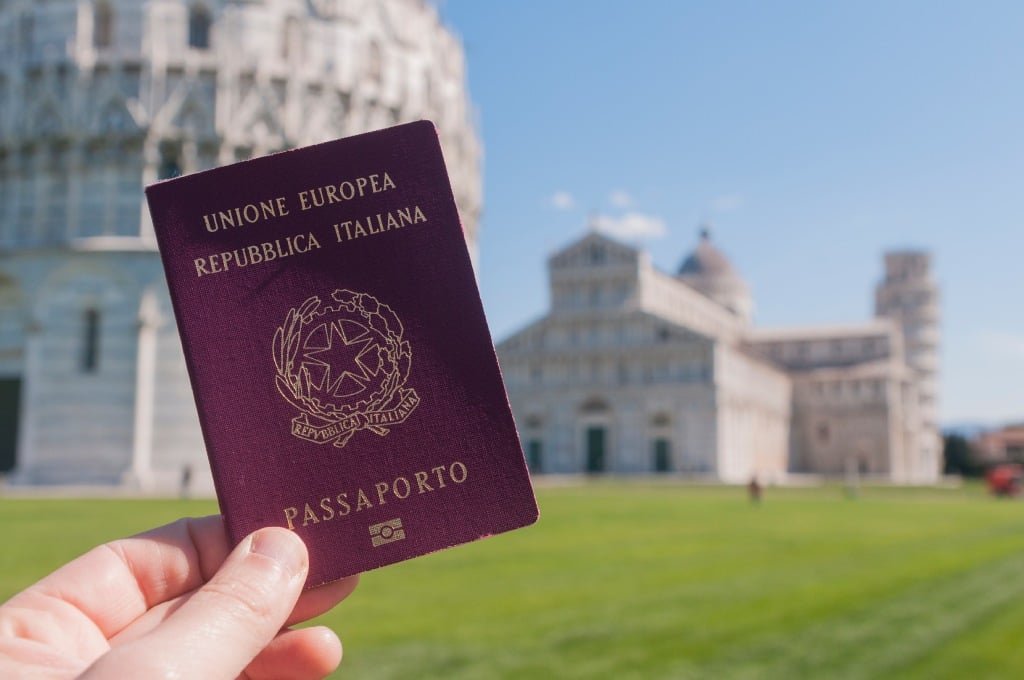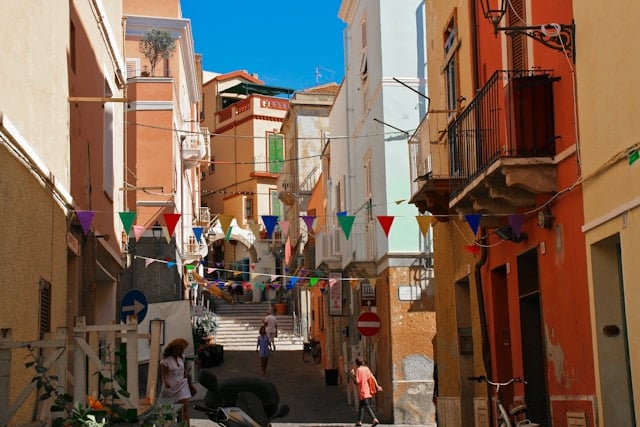Obtaining Italian citizenship and becoming a dual national is an attractive idea for many.
Not only does dual citizenship grant access to rights in Italy that residents don’t have, it also allows you to keep your rights in your home country (as long as your country allows dual citizenship.)
There are three main routes to obtaining Italian citizenship: naturalisation, ancestry, or marriage. The ancestry route, known as jure sanguinis or ‘right of blood’, is by far the most popular way to obtain Italian, or dual, citizenship.
READ ALSO: An expert guide to getting Italian citizenship via ancestry
The Local spoke to Elze Obrikyte, Senior Associate at Giambrone Law, and Jason LoPresti from Italian Dual Citizenship about the advantages and disadvantages to be aware of.
The benefits:
Freedom of movement
If you have Italian citizenship, this eases travel to not only Italy but to and within the Schengen zone for third-country nationals. You also benefit from freedom of movement rules allowing citizens to live and work in any of the 27 European Union member states.
“Being an Italian citizen allows you to enjoy all the rights of European nationals without any particular restrictions,” says Obrikyte.
“Italian immigration is rather strict, even if the new digital nomad visa will allow for more flexibility, but on the whole it is not easy for a third country national to transfer to Italy.”
“Getting dual citizenship eliminates this.”
Voting rights
Often living solely as a resident in Italy does not grant you access to vote in local and national elections. Obrikyte says this is ‘extremely important’ for dual nationals as they should have a say in what happens in their country.
READ ALSO: Italy grants citizenship to more people than any other EU country
LoPresti adds that dual citizens do not have to be residing in Italy to vote in national elections. They can live elsewhere and vote via mail (circoscrizione estero).
Tax benefits
While foreigners who are not resident in Italy can buy property, dual citizens who are not resident in the country can purchase a house with lower taxation rates, provided they transfer residence within 18 months. They have the same rights in this case as people residing in Italy.
“It is a definite bonus when buying,” says Obrikyte.
READ ALSO: Five surprising things to know about applying for Italian citizenship via ancestry
Such reductions include less in VAT (IVA) and registration tax for a first home purchase.
Italian citizens or foreign citizens resident in the country pay a two-percent registration tax and four percent VAT, which is lower than the rate paid by non-residents. Italian citizens do not have to be living in Italy upon purchase to be eligible for this rate.
Many people – US nationals in particular – are worried about double taxation if they obtain dual citizenship, but tax experts are clear that obtaining Italian citizenship in itself should not affect tax obligations in Italy and that tax treaties usually apply.
Employment opportunities
Having the right to live and work in Italy (or another EU member state) visa-free is a major advantage, the experts point out.
“Imagine you work for an international company in your home country and your ideal position opens up in Italy,” LoPresti says. “Of course the employer may favour someone who already has Italian citizenship as they won’t have to apply for a work visa.”
And should you want to apply for a job in the public sector in Italy, these are only open to Italian citizens.
“I think not only would this be advantageous in terms of work for the new Italian passport holder,” says Obrikyte, “but it would also be advantageous to them in a sense of belonging as they’d be part of working directly for the state.”

Advantages for children
“One big thing which must not be forgotten is how having Italian citizenship may benefit future generations,” says LoPresti.
“Passing this along to your offspring and their offspring would be extremely beneficial.”
READ ALSO: Will my children get an Italian passport if born in Italy?
Unlike citizenship of some countries, such as the UK, Italian citizenship can be passed onto an unlimited number of generations – regardless of which country the future generations are born in.
The drawbacks
Renewing passports
“Renewing one passport is tricky enough,” says LoPresti. “Imagine having to renew two. Now that is a fair bit of work.”
Renewing an Italian passport is not known to be particularly quick or easy: Italy in 2024 introduced a priority line after waiting times for renewals rose to as much as ten months.
Time and effort
While applying for Italian citizenship by descent is the most popular option, it’s not always straightforward and waiting times are increasingly long.
“If you are deciding to go down the route of jus sanguinis, be prepared for the amount of documentation you will have to provide,” warns LoPresti.
READ ALSO: Who is entitled to Italian citizenship by descent and how to apply for it
He adds it usually takes the longest to clear and carries the most requirements compared to other routes to Italian citizenship, particularly as documentation has to be from two countries rather than one.
High costs
Applications for Italian citizenship are not cheap, particularly if you need the help of a legal professional, which is very often the case.
“To do it properly with a lawyer may cost thousands,” says Obrikyte.
For LoPresti, the amount depends on several factors: “The type of case an individual has, the package they are choosing, and the number of applicants (family members) they are adding to their application all amounts to the overall cost.
READ ALSO: Revealed: How much it really costs to get Italian citizenship via ancestry.
“The average cost to complete the services professionally is about $6,000-$13,000,” he adds.
“However, many people apply as a group with other family members in the bloodline so they can split and share the total costs, which can drastically reduce their cost per person.”
Either way, the experts agree that there are very few disadvantages to getting Italian dual citizenship. Despite the cost and time involved in applying, being an Italian citizen comes with numerous advantages, particularly if you want to live in Italy long-term.
Find more information in The Local’s Italian citizenship section.




 Please whitelist us to continue reading.
Please whitelist us to continue reading.
Benefits of citizenship also include free healthcare